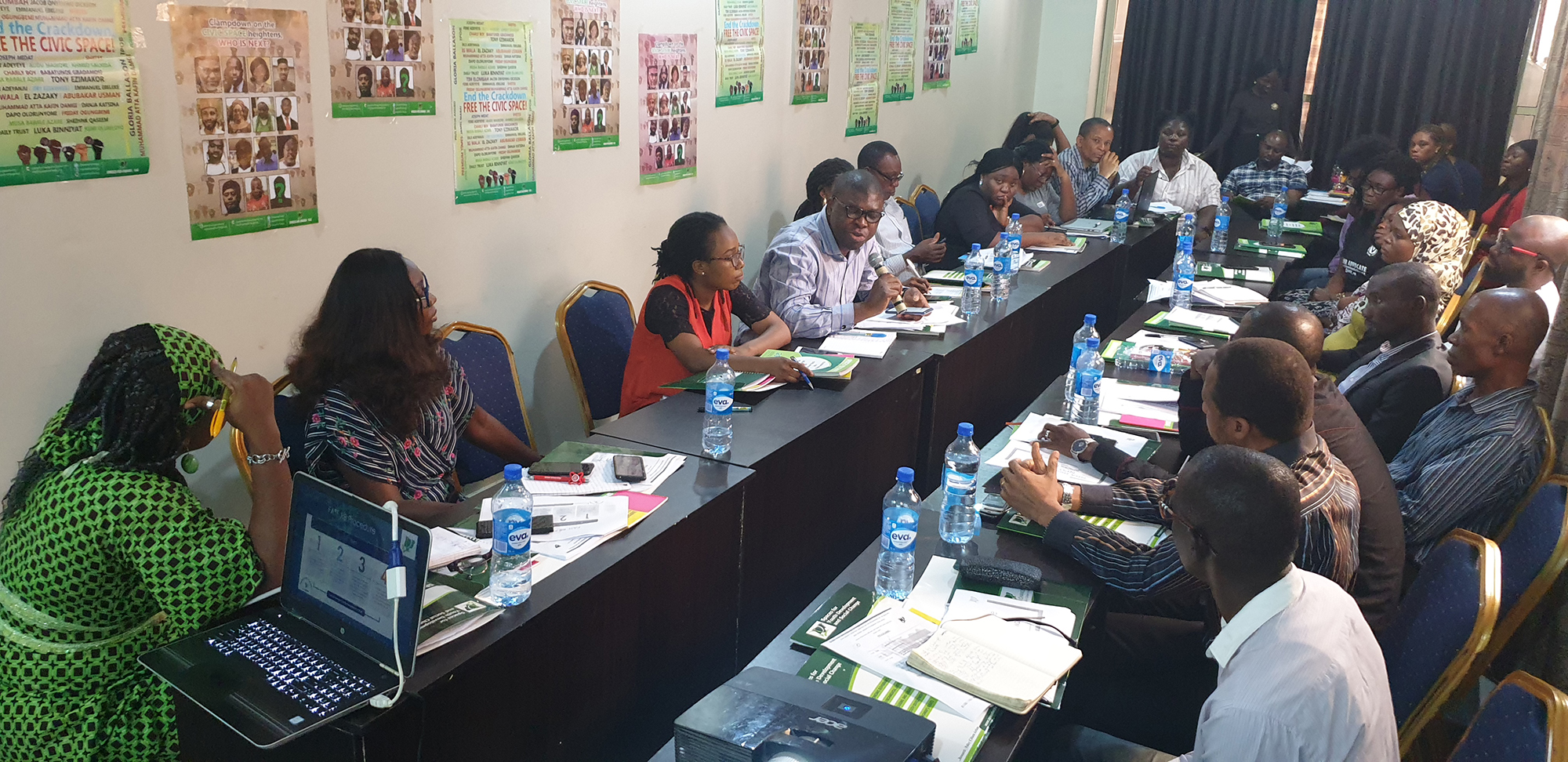This article was published more than 5 years ago.
This article is part of a series featuring inspiring stories of local action #fromthefrontlines of COVID-19 in the Global South. For more, visit our COVID-19 page and follow us on Facebook and Twitter.
As governments scramble to contain the spread of COVID-19, legislative bodies have kicked into overdrive, rapidly passing emergency measures—sometimes to the detriment of the democratic process.
When Nigeria’s House of Representatives attempted to quickly replace an outdated bill on managing infectious diseases with a draconian new law that would expand government powers and threaten human rights, a group of local activists raised the alarm—rallying enough support to successfully demand a public hearing.
The proposed law, the Control of Infectious Disease Act of 2020, aims to address shortcomings in Nigeria’s National Quarantine Act of 2004 by granting extraordinary powers to the president and Ministry of Health. Based heavily on Singapore’s controversial Infectious Disease Act of 1977—a recent examination found the text to be 98 percent the same—the draft legislation includes troubling sections on expanded police powers, discretionary authority to conduct public health–related surveillance, and compulsory vaccinations with no mention of informed consent. It levies fines of up to 2 million Nigerian naira (about $5,100 or £4,200) on violators—a steep increase from the 500-naira penalty imposed by the current law.
Sponsored by the speaker of the house, Femi Gbajabiamila, the legislation was poised to pass with little oversight—until civil society stepped in.

The Action Group on Free Civic Space—a coalition of Nigerian civil society organizations, student unions, social movements, and citizens, led by Fund-backed watchdogs Spaces for Change—took immediate steps to unite civil society in opposition to the bill and successfully demanded a public hearing, which is scheduled for June 10 and 11. The group is preparing to submit a memorandum that details their assessment of the bill and recommended changes, co-signed by a raft of civil society organizations, to the House of Representatives ahead of the hearing.
In a legal analysis of the proposed bill, Spaces for Change outlined clearly how key sections could be misused to stifle human rights and curb constitutional freedoms in Nigeria—during the pandemic and long after it has passed.
If passed into law, the legislation would grant the health minister the ability to declare any building an isolation area. It would allow the police to apprehend anyone suspected of suffering from an infectious disease, and to isolate them in an undisclosed location. The bill would also impose arbitrary restrictions on any association or gathering—deemed “likely to increase the spread of infectious disease”—and require compulsory vaccinations without consent.
Through all of this, the director-general of Nigeria’s Center for Disease Control would be shielded from any legal liability for implementing and enforcing the bill’s provisions—thanks to another provision in the bill.
The implications for civil society are enormous. The sweeping powers afforded to Nigeria’s executive, law enforcement, and government ministries could be easily misused to target human rights defenders, minorities, and vulnerable or marginalized communities.
Thanks to the collaborative efforts of the Action Group on Free Civic Space, the bill has been tabled and a public hearing is pending. However, Nigeria’s Senate recently introduced a National Health Emergency Bill, which, according to Spaces for Change, mirrors the House’s bill closely and contains many of the same troubling provisions.
The Fund is proud to stand with Spaces for Change, and other watchdogs around the world, whose work provides critical accountability and transparency during this challenging global moment. Spaces for Change is supported in part by the Fund’s Enabling Environment for Human Rights Defenders Program, which resources human rights defenders to push back on legislative, physical, and digital restrictions to civic space and catalyze transformative change.


